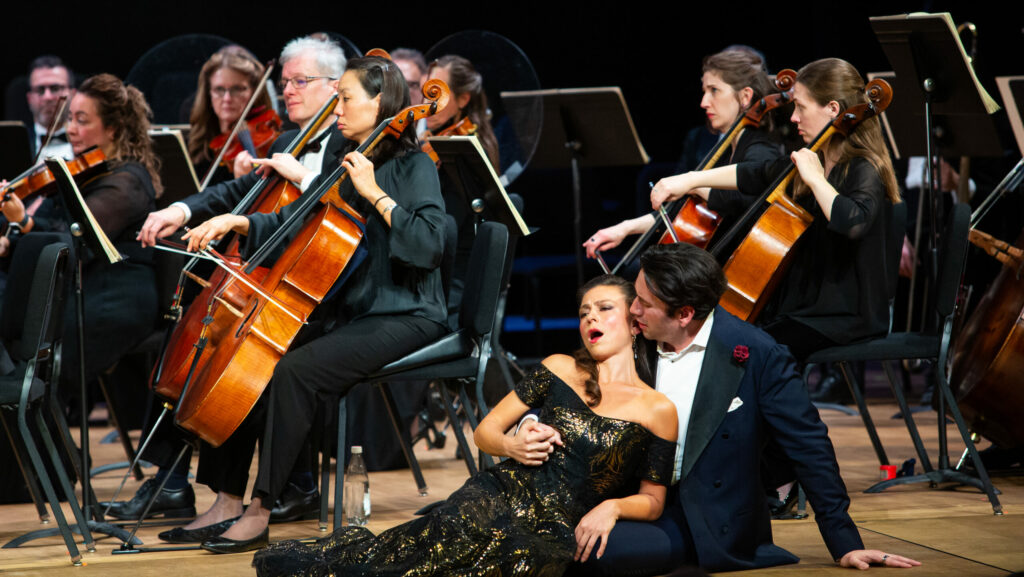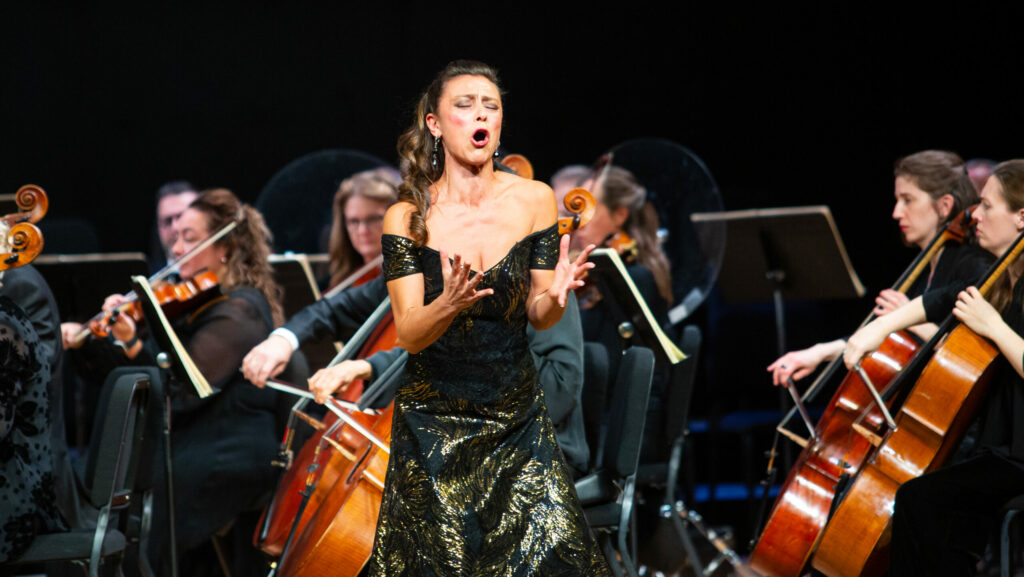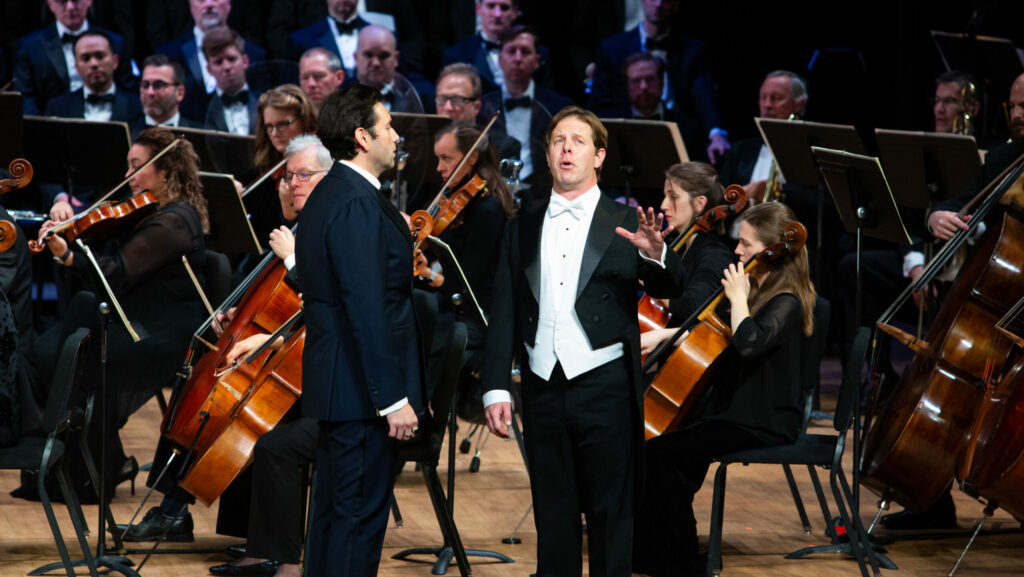Revisiting Prévost’s 1731 novel Histoire du Chevalier des Grieux, et de Manon Lescaut not even a decade after Massenet’s popular opera from the same material, Puccini found his first great success in the 1893 premiere of his Manon Lescaut. It’s a sort of a gritty reboot of Massenet’s Manon, dispensing with that work’s pageantry and more expansive plotting in favor of lean, bare-knuckled verismo.
The night belonged to the formidable duo of Corrine Winters and Joshua Guerrero as the ill-fated lovers. These two mid-career American artists, both the same age, are perhaps less familiar to U.S. audiences than they should be, but have often appeared in the biggest European houses. Both are also making Met debuts in the near future, hopefully an indicator of more stateside activities to come.
Winters made a persuasive role debut as Manon here, her dark-hued soprano revealing layers of depth as she rose to the part’s varied vocal demands. An inviting, covered sound and deliberate approach characterized Act I’s convent-bound Manon (though she gets over those objections to a Chevalier meet-up awfully fast), opening up a bit in her duet with des Grieux but still the convincing novice. For the beginning of Act II, she introduced a richer, more polished sound, commensurate with Manon’s upgraded circumstances, though her run at “In quelle trine morbide” still felt a bit routine, along with some tentative high notes.
Winters’s real breakout began mid-Act with des Grieux’s illicit arrival in her boudoir and their subsequent duet, delivering an urgent core sound and unmitigated vocal glamour in her appeals to des Grieux. Act III showed off Winters’s substantial vocal reserves, with explosive high notes soaring over the crowd scenes at the port of Le Havre as Manon’s exile is confirmed.
For Act IV’s famous dénouement in the Louisiana desert (despite the supertitles’s attempts to add a swamp), the leads sang the final scene without scores to allow for more intensive blocking. Winters’s “Sola, perduta, abbandonata” cemented the completeness of her assumption, bringing a steely focus and lavish sound to Manon’s sorrow and bitterness, followed up with a series of finely deployed pity-inducing effects in her death throes.
Guerrero’s brawny Chevalier des Grieux made clear why this has been a successful role for him, with appearances in Vienna and Munich in recent years. This was red meat vocalism of a high order, Guerrero’s big sound and throwback effects conveying a character easily pushed to the limits of passion. His des Grieux was a man under constant duress, and he established a taut, pressed sound that could blossom excitingly into a huge open upper register seamlessly extended from the rest of the voice.
Highlights included the first big thrills of the night in a generous Act I “Donna non vidi mai,” black angst in his Act II exasperation with Manon’s inconstant affections, and poured-on power for his big statement of sacrifice in Act III. One only wishes Guerrero had added a bit more variety to the somewhat relentless sonic picture; softer effects were underwhelming in the few occasions when he tried to change things up.
Baritone Levi Hernandez led a strong supporting cast as Manon’s irascible brother Lescaut, bringing an intelligent treatment to Lescaut’s exposition duties and emphasizing relatable creep charisma over boorishness. Andrew Bidlack was a sensitive and sweet-voiced Edmondo in Act I, while Gene Galvin had a good stage presence and comic instincts for Geronte but missed some vocal authority.
Maestro Antony Walker offered plenty of one-night only magic on the podium here, once again making the case for the concert opera format. Puccini’s score bounced along with a sense of energy and purpose, with Walker building exciting climaxes for the ends of Act II and III, as well as presiding over a heartstring-tugging intermezzo. Perhaps the most rewarding feature of Walker’s leadership, however, was the degree of collaboration he achieved with the soloists in this singer driven work, negotiating fine-grained pacing and effective dramatic beats with Winters and Guerrero.
The crack WCO orchestra assembled for these shows played with their usual sense of commitment and offered fine individual contributions in places like the intermezzo’s string solos. If there are occasional passages where the band only gets to about 80 or 90 percent of what Walker is looking for, the musical ideas are clear enough that the effect is not entirely lost. WCO’s chorus provided strong support throughout with nimble handling of the crowd scenes and attention to the text.
Photos: Daniel Schwartz





